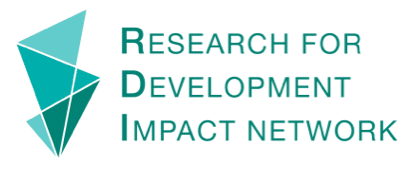
The RDI Network, CBM Australia, Nossal Institute for Global Health and Pacific Disability Forum (PDF) have collaborated to bring forth a disability-inclusive research guidance, Research for All: Making Research Inclusive of People with Disabilities.
Launched in June, the RDI Network and ACFID now bring you an in-depth online workshop. This online event is the third (and last) of three webinars in this series.
Guests to include Helen Fernandez from TEAR Australia. More guests to be announced.
Best-practice across the research cycle
Detailing the key steps and processes for ethically involving people with disabilities throughout the four main phases of the research process: planning, design, implementation, and dissemination. Refer to different parts of this section during planning and implementation of
research projects to ensure that the practice is inclusive.
- Planning Phase: develop meaningful research partnerships, understand the definition of disability, build team capacity for working with people with disabilities, and budget for inclusive research and reasonable accommodation.
- Design Phase: develop disability-inclusive research questions, as well as identify ethical and inclusive methodologies to including people with disabilities as co-researchers, team members and participants.
- Implementation Phase: outlines strategies for promoting inclusion within data collection and analysis, and capacity building activities.
- Dissemination phase: outlines approaches to ensure research findings and forums are accessible to people with disabilities. This includes acknowledging their lived experience, contributions, and labour through the practice of co-authorship.
*Please register on time to ensure that we can accommodate your accessibility needs.



